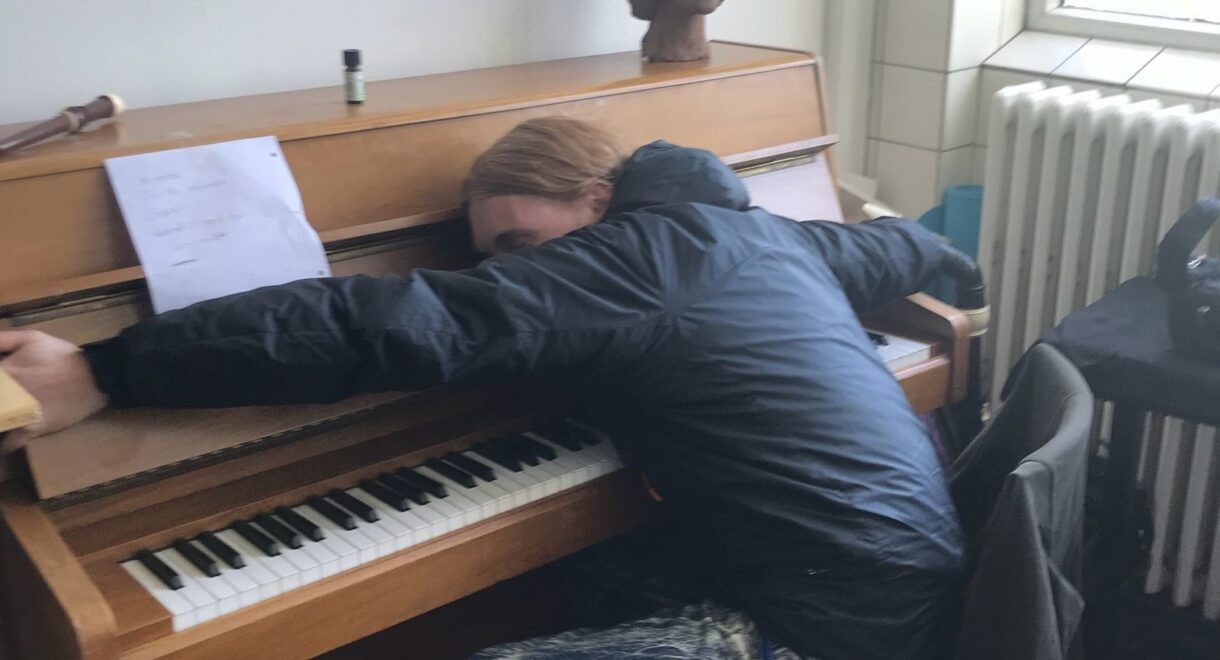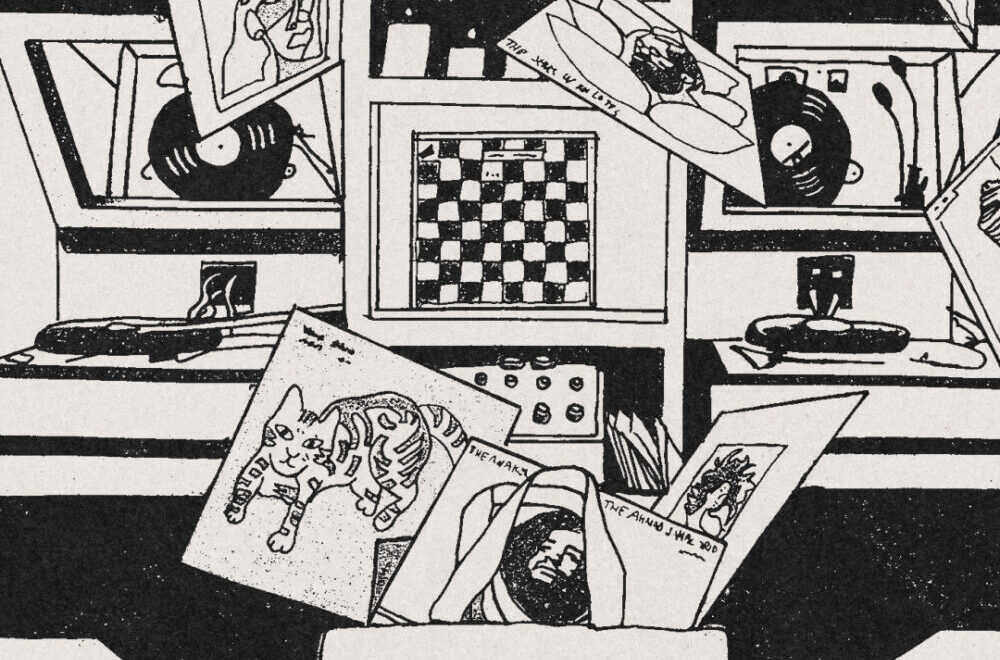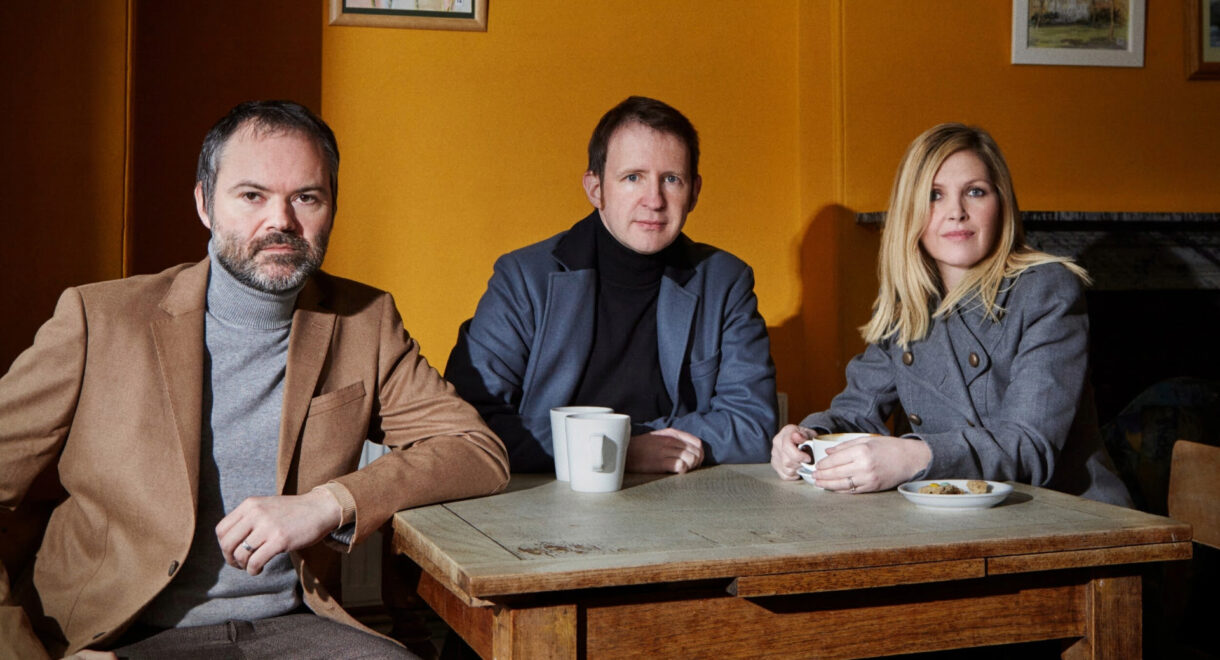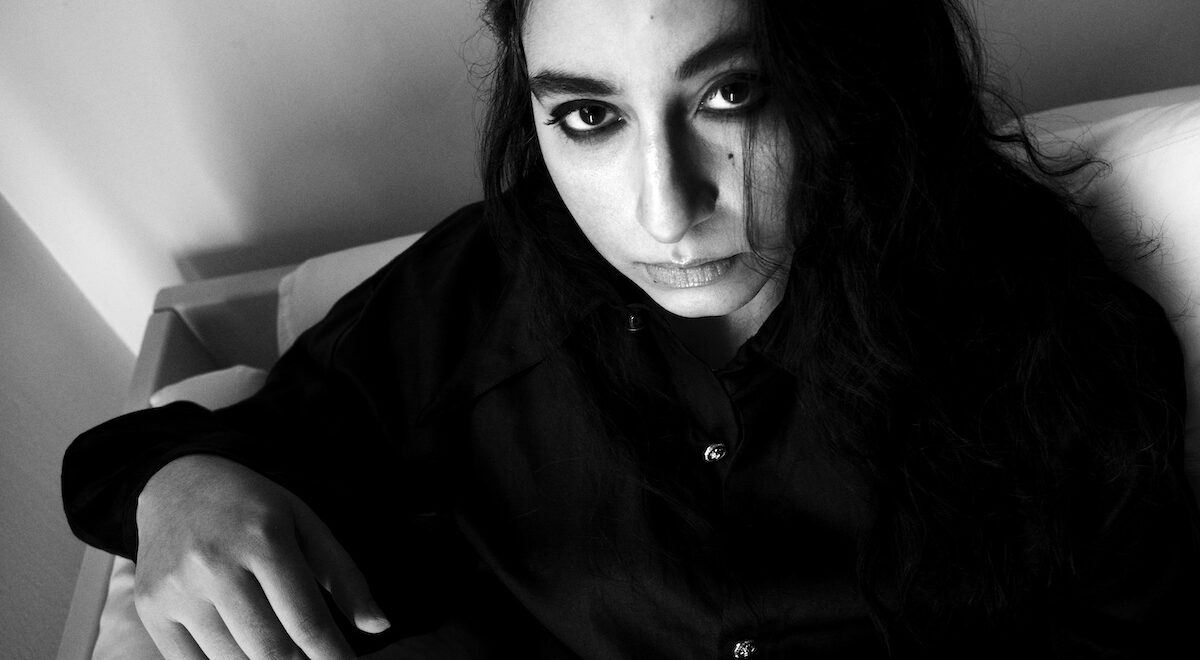Thursday: Don’t miss a 5 GATE TEMPLE showcase at Plaza Nightclub featuring Petrols, Kelman Duran, and John T. Gast. Founded in 2015, the label 5 GATE TEMPLE emerged from the […]
Jessica Pratt: 38 Songs and a World of Her Own

The artist will conclude the California leg of her tour at the historic Ventura Theatre on August 9, her last L.A.-area show on the books.
It’s been 13 years since Jessica Pratt released her self-titled debut, an album that introduced a songwriter already steeped in mystery, her tone suffused with layers of memory. Lindsay Zoladz captured it succinctly: “a voice that balances spry sweetness with husky grit.” Since that debut, Pratt’s songs have grown stranger, more distilled, more inward, their elliptical quality deepening as she carved out a singular voice. It feels less like composition and more like conjuring, attuned to the same spectral frequencies that echo through the pages of Rob Young’s Electric Eden: Unearthing Britain’s Visionary Music, his brilliant exploration of British folk music.
Pratt will conclude the California stretch of her summer tour with a stop at The Majestic Ventura Theatre on August 9. It’s her final show in the region, and among her last before taking a break. If you haven’t caught Pratt’s live set yet, we highly recommend making it out to this! Tickets are available here.
In Electric Eden, Young defines “visionary music” as work that invokes “travel between time zones, of retreat to a secret garden, in order to draw strength and inspiration for facing the future.” This notion serves as a fitting framework for Pratt’s catalog, a body of work that draws heavily from the past while remaining untethered to it, building a private world with its own set of rules, one that resists fixed coordinates. In those dozen-plus years, she has released just 38 songs, a testament to the care with which she crafts her music.
Each album feels carefully etched. Each deepens the atmosphere of that world, where time slips, language softens into melody, and meaning flickers just beyond reach. Her songs suggest, recede, and shimmer, quietly fulfilling the promise of a folk tradition rooted in reverie and reinvention.
It wasn’t until Here in the Pitch, her 2024 release, that Pratt reached something like breakout recognition. The album refined her sound just enough to broaden its appeal, all while maintaining the sense of secrecy that has long defined it.
Her earlier songs, though, laid the foundation. They arrived spare and self-contained, wisps of memory rendered through tone and timing. Tracks like “Night Faces” and “Back, Baby” carried a strange intimacy, songs that seemed to hold something back even as they beckoned you in. Across her first three records, Pratt shaped a sound built on restraint and implication, resisting the urge to explain itself and, in doing so, creating its own pull. Here are a few portals to enter.
Night Faces (2012)
“Night Faces,” the second track from her debut, offers an early glimpse of Pratt’s rare ability to turn minimalism into mood. The lyrics move like fragments of overheard thought, with enough detail to situate you, but not enough to fully ground you. A parking lot, a rearview mirror, a pair of blank laces in the driver’s seat: ordinary images rendered just out of focus, as though seen through the haze of memory. “You know I spent a million tears / trying to get myself out all these years,” she sings, her voice soft, unsentimental, as though stating something long accepted.
Moon Dude (2015)
A few years later, on “Moon Dude,” Pratt revisited that sense of quiet dislocation with even more confidence in the space between words. “You’re on the outside, you’re looking in / To the escalators humming / They are pulling you from nothing / But your loneliness,” she sings, sketching a scene in motion that never fully moves forward. Like “Night Faces,” the song dwells in a liminal space, where the self hovers somewhere between observer and shadow. If “Night Faces” is the walk across the parking lot, “Moon Dude” is the pause at the threshold, uncertain whether to enter or remain.
“This record was recorded completely by me,” Pratt told Interview magazine in 2015, while promoting her second album, On Your Own Love Again. “Everything was done in the way that I wanted, with enough time for that to happen. I did it all at home on a four-track in a couple of months under self-imposed house arrest.”
She contrasted that process with her debut: “That record was recorded in a studio that belonged to a friend of a friend. I wasn’t very comfortable. I felt very vulnerable. And there was a sense of urgency; I would do guitar and singing only, and usually just one take. I wanted to do something more layered, and that’s how I’ve approached these new songs. I think there’s a lot more depth to them.”
Back, Baby (2015)
“Back, Baby” stands out as one of Pratt’s most recognizable songs, a wry, featherlight tune that conceals an undercurrent of heartache within its elegance. First appearing on On Your Own Love Again, the track is built on her signature nylon-string guitar and sung in a tone that hints at detachment. “Guess I should be happy for you,” she offers, letting the bitterness pass like a breeze. The result is classic Pratt: vague, melodic, emotionally evasive, a song that lingers well beyond its short runtime.
Its understated power hasn’t gone unnoticed. The track appeared prominently in the opening scene of Atlanta’s third season, where its melancholy set the tone for an episode unfolding in dream logic. In 2023, Troye Sivan sampled it for “Can’t Go Back, Baby,” embedding her voice into a sleek modern pop frame. That a lo-fi folk recording could be reimagined so fluidly speaks to the quiet magnetism of Pratt’s work: solitary in origin, yet uncannily adaptable.
Poly Blue (2019)
A song in regular rotation during Pratt’s seemingly unending tour in support of Here in the Pitch, “Poly Blue” enters like a half-remembered flashback. It marked Pratt’s first collaboration with arranger (and partner) Matthew McDermott, whose subtle orchestrations give the track its soft glow: a hush of strings and space that cradles her voice without ever encasing it. The lyrics read like a coded valentine — part apology, part elegy, part lullaby—as she sketches a figure who’s lovelorn, touch-shy, and perpetually just out of reach. “He’s the undiscovered night, a parting line,” she sings, and as always, meaning here isn’t fixed. It flickers at the edges of feeling.
Life Is (2024)
In the spring, while in Arkansas, I heard “Life Is” playing in the lobby of a hotel, slipped between two pop songs on a soft-focus playlist, totally out of place and absolutely spellbinding. The track, which closes Here in the Pitch, unfolds like a slow exhale: gentle, haunted, and suspended in a kind of emotional twilight. Pratt sings with a hush so delicate it almost disappears, her voice curling around phrases about time and surrender. That it could surface in such an unlikely setting is a small but telling measure of how her music has floated its way into the American consciousness — not with promotion or momentum, but through quiet, persistent resonance.
“There are a few key artists I was listening to a lot and trying to channel,” Pratt told Nylon. “Scott Walker, latter period Judy Garland, Karin Krog, who was a Scandinavian jazz singer, and Steve Kuhn, a jazz guy who did a solo record where he sings.” The thread that connects them? “The unifying theme is a world-weary crooner situation,” she said, “but also people with very unique, idiosyncratic voices.”
She spoke with particular reverence about Garland. “There’s a live Judy Garland album at Carnegie Hall in 1961,” she noted. “By that point, her voice has taken on this very wooly, weathered sound, but she still has amazing range, power, and control. It’s this amazing combination, knowing about her life and how f*cked up it was.” You can hear that lineage in “Life Is,” not as imitation but as atmosphere: a reverent glide through age, experience, and the fragile persistence of beauty. The kind of music that doesn’t just recall Electric Eden, but quietly wanders through it.
Tickets for Jessica Pratt’s August 9 performance at the Ventura Theatre are available now — advance purchase is recommended.










